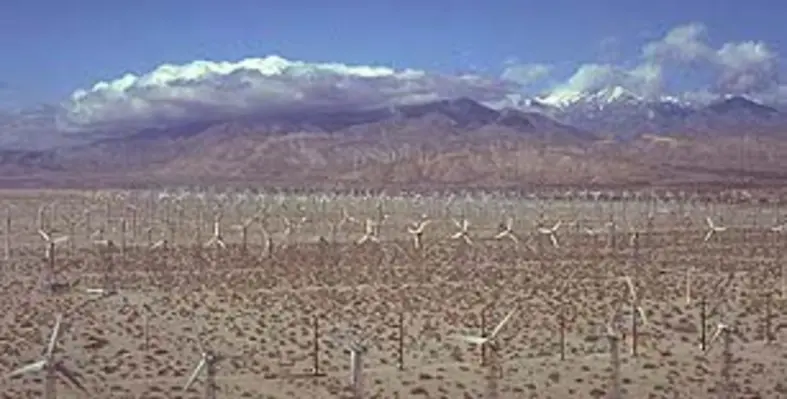A total of nine international companies and consortia have been shortlisted to build some of Syrias first wind farms as part of the government efforts to encourage foreign investment in the power-generation sector.
The companies are bidding for the right to build and operate wind farms at either the al-Sukhna site near Palmyra or the al-Hijana site south of Damascus.
They include Spain's Iberdrola, Greek firm Terna Energy and Chinese company Sinosteel Tiancheng, and were shortlisted from a total of 17 companies that submitted initial bids for the contract.
A joint venture funded in part by Syria's Cham Holdings is also in the running. It is already in the process of developing a power plant in Syria with Finnish firm Wartsila.
The current contract being offered is for one or two wind farms, operated as independent power producers. This means the winning companies will be able to generate and sell electricity to consumers at market rates.
The contracts will either be awarded on a build-operate-transfer basis, meaning the plant is eventually handed over to the government, or a build-own-operate basis.
The Public Establishment for Electricity Generation and Transmission (PEEGT), the government body in charge of issuing the contract, is expected to soon announce a timeline for the bidding process.
After the winning bidder is selected, planning and constructing the wind farms is likely to take several years. In January this year, Spanish company Gamesa secured a deal to build Syria's first wind farm at another site near Homs, but it is predicted to take three to four years to complete.
Attracting foreign investment into the power generation sector is a priority for the government, with Syria's power-generation in desperate need of upgrading if it is to meet rising demand in the coming years.
The Ministry of Electricity forecasts that demand for electricity will grow by 4.5 per cent a year between now and 2020. At the same time, Syria's power-generation capacity is predicted to decline unless new power plants are built to replace older generators being taken out of service.







